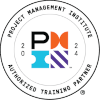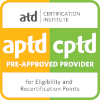Certificate Suite Details
Key Features
- Mobile-friendly
- Audio-enabled
- Badge and credit-awarding
- Real-world case studies
- Fully accessible
- Games & Flashcards
- Expert-supported
- Video content
Certificate Preview
Certificate Description
Learner Feedback
Courses Included in this Certificate
Course Description
Statistical Process Control is all about boosting quality. Quality management can not only deliver value to customers and stakeholders, it can also enable data-driven decision making that helps organizations gain a competitive advantage in the marketplace. This intermediate-level course will introduce the basics of quality management, explaining the difference between quality control and quality assurance, providing methods for application of analysis, showing different applications of the Seven Basic Quality Tools. It all culminates in a brief case study, which illustrates the concepts covered.
Course Credits
Course Description
This course discusses data-driven decision making across a variety of sectors such as healthcare, education, and government. This course also offers recommendations for decision-making based on data analytics for each sector. The course will begin with an introduction of Big Data, then continue into a deeper dive on its implications within each sector.
Course Credits
Course Description
When using data analysis to improve organizational performance, it's vital to employ the tools that bring the data to life and keep people engaged in the process. Organizations in both the public and private sectors often use tools and frameworks to deliver the data, and the information the data might suggest, to its staff. This intermediate-level course will explain some of these measures and tools, describe some specific measurements, and explain the relationship between assessment and strategy. Summarizing the data with the correct tool can be the gating factor to reaching staff and effecting changes that spur performance improvement.
Course Credits
Course Description
There are a number of statistical tools and techniques that are commonly used by organizations to inform decision-making. These tools span numerous business functions and support many different objectives. This intermediate-level course describes, evaluates, and analyzes different statistical techniques and their real-world limitations and benefits. The course features crossover analysis, break-even analysis, cluster analysis, decision tree analysis as well as an introduction to regression.
Course Credits
Course Description
Managing today can require good instincts. However, instinct is not enough to manage the huge amounts of available data and the complex variables of the business world. Statistics can help managers and leaders make sense of these complexities, back-up their assertions, and feel confident about when to take the risks and when to pump the breaks. This intermediate-level course examines statistics as a managerial tool. It also looks at common graphical representations of data and how these can be effective tools to explain situations and support persuasive arguments for a course of action.
Course Credits
Course Description
Professionals in all industries rely on data to make decisions. By including data in your decision-making process, you can remove some of the guesswork that comes from relying solely on instincts and experience. This course will introduce you to the world of data analysis by exploring the Davenport-Kim three-stage model for quantitative analysis. You will learn about different analytical methods, data quality and management, and visual representations of data. You will also explore research standards and best practices, as well as challenges that may arise as you analyze data. This course will provide you with information you can use to better understand data and its importance in the business world.
Course Credits
Notes
This course has an "Ask the Expert" feature, which submits your questions directly to an expert in the field you are studying. Questions are answered as quickly as possible and usually within 24 hours.
As an Accredited Provider, MindEdge offers for its learning events that comply with the Continuing Education and Training Standard.
Learners must achieve an average test score of at least 70% to meet the minimum successful completion requirement and qualify to receive credit. Learners will have three attempts at all graded assessments.
Project Management Institute, , the Registered Education Provider logo, Project Management Professional, , Project Management Body of Knowledge, , Agile Certified Practitioner, -, Risk Management Professional, -, the Talent Triangle, and the Talent Triangle logo are marks of the Project Management Institute, Inc.
Information in this course has been taken from A Guide to the Project Management Body of Knowledge, (® Guide) - Sixth Edition, Project Management Institute Inc., 2017.
The following list outlines the you will earn for completing this course, based on the certifications you have.




